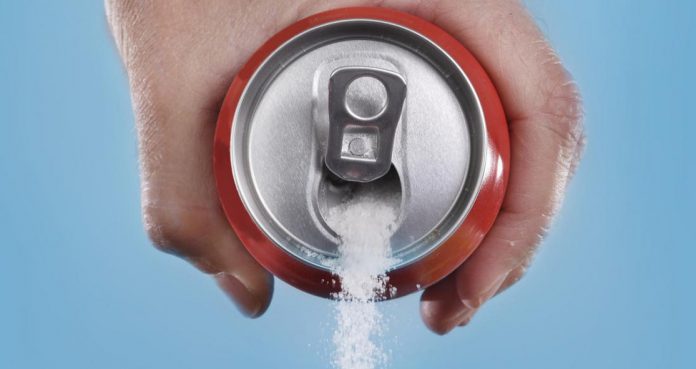According to a new report from the American Heart Association’s journal, Circulation, women are more susceptible to the risks of cardiovascular disease due to drinking more sugary drink in a day.
Use of low-calorie or non-caloric sweeteners namely Splenda, Stevia, or NutraSweet is risky but it has a 4% risk of mortality and drinking two or more of those artificially-sweetened drinks was linked to a greater risk of death among women.
It was already found in earlier studies that weight gain is directly related to the sweetened soft drinks and sugary beverages. Ultimately, weight gain leads to common health hazards such as cardiovascular disease and type 2 diabetes. In 2017, at Boston University Medical Center, a pair of reports drawn from the Framingham Heart Study (FHS) showed that sipping sugary drinks leads to smaller brain volume and poor memory. Whereas a daily diet-soda habit can result in a much higher risk of suffering dementia and stroke.
The American Heart Association and the Harvard T.H. Chan School of Public Health analyzed and evaluated data from two large studies to determine whether consuming artificially sweetened beverages would be responsible for the higher risk of death. In that study, researchers studied 37,716 men in the Health Professionals follow-up study and 80,647 women in a Nurses’ Health Study.
It was found that those who drank two or more sweetened drinks a day had a 31% increased risk of death due to heart disease, and an 18% increased risk of cancer death in both men as well as women compared to those who drank less than one sugary drink. After this observation, the study was sorted further as per the gender and it was found that women who had more than twice beverages a day saw a 63% increased risk of early death, while men saw a 29% increased risk.
Vasanti Malik, a lead author on the paper mentioned in a statement, “Drinking water in place of sugary drinks is a healthy choice that could contribute to longevity. Diet soda may be used to help frequent consumers of sugary drinks cut back their consumption, but water is the best and healthiest choice.”
Artificially sweetened drinks are the biggest source of added sugar in the average American’s diet as per the American Heart Association. Drinking a 12-ounce can of soda adds from 140 to 150 calories on an average, and between 35 to 37.5 grams of sugar.
Further research needs to be carried to understand the stronger association between sugary drinks and an increased risk of death. Also, more research is intended to understand why sweetened beverages tend to have such a harmful effect on women’s health. The study published in the journal last month also found that aged women who are over 50 or more having the habit of drinking artificially sweetened beverage a day have an increased risk of heart attack, stroke, or early death.
The American Beverage Association said, “Soft drinks, like all the beverages made by our industry, are safe to consume as part of a balanced diet. The sugar used in our beverages is the same as sugar used in other food products. We don’t think anyone should over consume sugar, that’s why we’re working to reduce the sugar people consume from beverages across the country. Additionally, low- and no-calorie sweeteners have been repeatedly confirmed as safe by regulatory bodies around the world.”
The association further said that “We are leveraging our strengths in marketing and innovation to interest people in options with less sugar and zero sugar and in smaller package sizes. We’re creating more drinks with less or no sugar and we’re making the smaller bottle and can options more widely available while boosting consumer demand for these options through our marketing. Today, 50% of all beverages purchased contain zero sugar.”
According to Beverage Digest, soda consumption in the United States fell to a 31-year low in 2016. People bought more bottled water than soda in 2017, gulping 13.2 billion gallons of water compared to 12.3 billion gallons of soda.
So, considering today’s need for healthier drinks is making sweet beverage makers to bring innovations in their products. Last year, Pepsi acquired home seltzer brand SodaStream for $3.2 billion. It made an announcement in the last month that it snapped up Muscle Milk-maker CytoSport. Another leader in the soft drinks market, Coca-Cola has acquired mineral water brand Topo Chico and it has launched it’s Coke Zero and Diet Coke brands and unveiled sparkling versions of Dasani and SmartWater categories. Nielsen reports, nearly $49 million sales in 2018 was generated only from sparkling water which is 22% more than last year. The sparkling water beverages such as club soda and seltzer grew 54% in the past four years.























